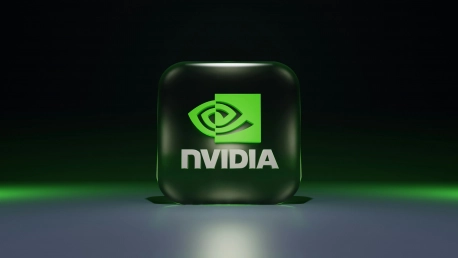As modern technology advances, the intersection of intellectual property law and artificial intelligence becomes increasingly complex. Nvidia, a tech giant, is currently at the center of legal action that accuses the company of copyright violations. The contention is rooted in Nvidia’s use of its NeMo AI platform, which has reportedly been trained on datasets that include copyrighted material from a group of authors, without their permission. These legal disputes are not just routine courtroom dramas; they carry profound implications for the future regulation of AI in creative industries. Intellectual property rights are at stake as authors contend that their copyrighted works have been unfairly appropriated in training AI models, potentially setting a precedent for how AI and copyright laws will interact moving forward. This legal conundrum could significantly change how we view AI’s role in using and generating content, pushing for clearer rules and respect for copyright in the digital age.
Nvidia’s Legal Challenges from the Writing Community
The Core of the Copyright Dispute
A group of respected writers, including Brian Keene, Abdi Nazemian, and Stewart O’Nan, are taking legal action against Nvidia in a proposed class-action lawsuit. The authors allege that Nvidia’s AI, NeMo, was trained using a massive dataset containing 196,640 books, which potentially infringes on their copyright. Although Nvidia later removed access to the dataset in response to copyright complaints, this action, the plaintiffs contend, is an indirect admission of guilt.This lawsuit is part of a growing trend of legal challenges faced by AI companies concerning the use of copyrighted material. Instances like OpenAI’s tussles with The New York Times and discontent from the Authors Guild and George R.R. Martin exemplify the tension between technological advancement and copyright laws. These disputes highlight the ongoing struggle to find an equilibrium that respects authors’ rights while fostering technological progress.
Implications for AI and Copyright Law
The confrontation between Nvidia and these authors exemplifies a broader scrutiny over AI’s engagement with intellectual property. Caught at this crossroads, the writing community voices a dire prediction: that AI’s ability to produce content inspired by copyrighted works is a virtual dagger to their craft’s heart. They maintain that the products of these AI platforms are effectively “derivative” works, therefore infringing upon their exclusive rights as outlined by copyright law.These legal scuffles underscore a pivotal issue—the need for contemporary copyright laws that can gracefully navigate the complexities AI brings to the table. The potential of AI to learn from and repurpose copyrighted materials beckons for a clear framework that ensures the sanctity of intellectual property is maintained. This debate, reverberating through courts and public discourse alike, seeks to establish a firmer boundary between innovation and the rights of content creators, heralding a new chapter in the digital age.
The Tech Industry’s Dilemma
Balancing Innovation with Copyright Laws
The legal challenges facing Nvidia and other companies underscore the mounting concerns over intellectual property rights in the rapidly evolving AI landscape. The ability of AI technology to absorb and repurpose content throws up complex issues about upholding copyright laws while fostering innovation. As the tech industry is at the center of these copyright battles, their approach to resolving such dilemmas will be watched closely. The decisions they make could establish critical precedents that will shape the way intellectual property is managed in the burgeoning field of artificial intelligence. How these companies balance the drive for technological progress with the protection of original content remains a crucial question, and their strategies may serve as guidelines for future policies on intellectual property rights in the age of AI.
Toward a Fair and Competitive Digital Ecosystem
Navigating the complexities of digital innovation versus creators’ rights presents a dual challenge. The focus must be on fostering a digital market that promotes fair play while safeguarding intellectual property. Legal disputes are prompting a reassessment of copyright laws to better suit the digital age and artificial intelligence developments. It is crucial to find a balance that encourages technological progress without compromising the financial and moral rights of content creators.As the digital and AI landscapes evolve, the legal framework must evolve too, ensuring that innovation can advance in a manner that is responsible and respects the creators’ ownership. The ultimate aim is to cultivate a legal environment that nurtures innovation and provides creators with the confidence that their creations are protected.









